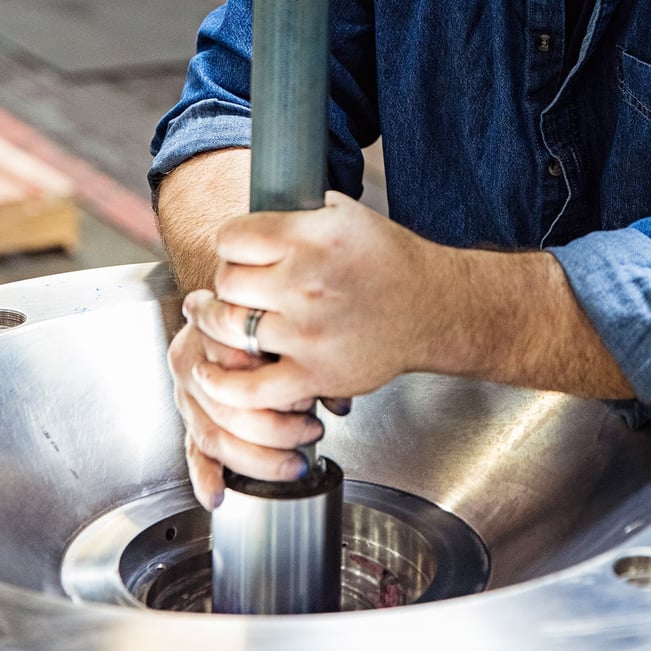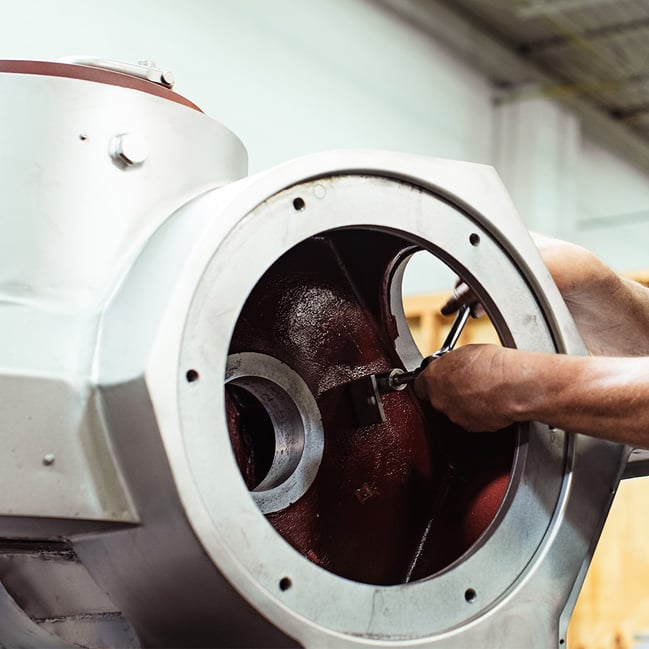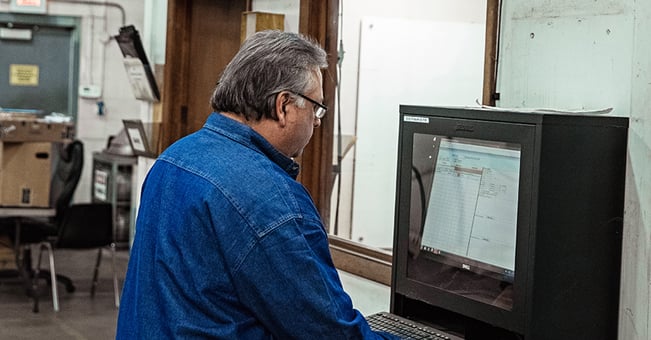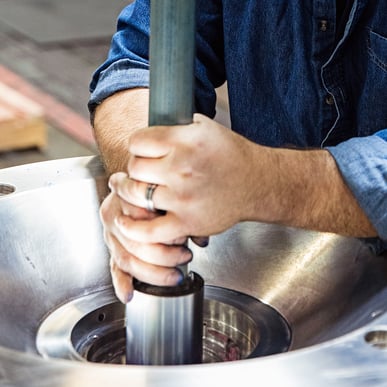Unexpected downtime means lost revenue (and usually lost product). So knowing how to troubleshoot when your centrifuge experiences issues is critical to getting back up and running to meet your production volume goals.
For anyone who has ever stood in front of a malfunctioning centrifuge, we’re here to help you safely and effectively troubleshoot your equipment (without all of the guesswork).
1. Troubleshoot sooner (rather than later)
Whether your centrifuge is leaking or is beginning to make a weird sound, your first step should always be to stop the equipment and figure out what’s happening (versus trying to power through). It’s no secret that centrifuges are dangerous pieces of equipment — and as such, they’re not worth the risk of running and putting your operators’ lives at risk.

2. Have a basic understanding of what causes centrifuge issues
When you know what’s creating a problem, you can make a plan to fix it. Here are a few common issues we hear from plant operators (and the likely culprit).
A decrease in flow (or complete lack of flow) — Often caused by an air pocket in the pipes, a clogged impeller, or a misaligned depth of suction.
No flow when the centrifuge is turned on — Often caused by air in the pipework, a suction lift that is too high, incorrect speed, a motor that is set to run in reverse, or a clogged impeller.
Louder-than-usual noise — Often caused by air in the pump, a pump that’s working outside of its operating zone, low oil, a bad bearing, or a transmission that’s on its way out.
High vibrations — Often caused by an unbalanced bowl, poor coupling alignment, or a clogged or broken impeller, high vibrations can quickly become dangerous and require immediate shutdown until a professional can identify the issue and help resolve it.
Bowl not shooting — Often caused by a shut water valve, too low (or too high) water flow, plug valve(s)/distributing ring that is worn and has fallen into disrepair, worn gaskets, or too low of bowl speed.
3. Make sure your centrifuge is actually the problem
Because it’s a complex piece of equipment, it can be easy to assume that issues start with the centrifuge. But in many cases, the issue you’re dealing with is actually coming from upstream in your production line. Issues like air bubbles, temperature, pressure, and flow rate can all impact your product before it ever reaches your centrifuge. Always look at your entire production line before determining the cause of your problems.
4. Call for help when you need it
When in doubt, call the pros. If we’re being honest, a lot of emergency calls that come into our shop are issues we can assess and remedy over the phone. Because we work with centrifuges every day, chances are we have a few tricks up our sleeve to try before we need to send out a technician to take a look in person.
That being said, if you wait to call us about leakage (instead of giving us a call right away), the chances of our technicians needing to get their eyes and hands on your equipment become more and more likely with each passing day that the issue persists.

Common issues we help troubleshoot
Most of the calls we receive when a centrifuge goes down are about:
- Vibrating machines
- Leaking, including product discharge out of the inlet
- A bowl that isn’t shooting
- A bowl that’s hanging or sticking open
- An unbalanced bowl
5. Prevent issues from happening in the first place
We know it sounds obvious, but one of the best ways to troubleshoot your centrifuge is to make sure you don’t have to troubleshoot in the first place. Regular major and minor service helps keep your centrifuge running smoothly (and can help you anticipate when your centrifuge will require more extensive work, which helps you avoid downtime and emergency service calls in the future).
Is your centrifuge malfunctioning? Or looking to get ahead of future repairs before they cause problems? Whatever you need, our team is here to help.

